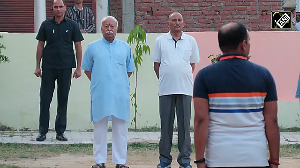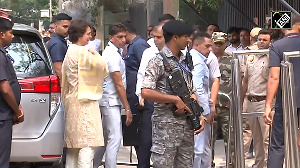The new agreement, will be negotiated and once it is sealed it will also be judged
 Starting Monday, 196 countries shall attempt to achieve what they failed to do in 2009 — sign a new global compact to fight climate change collectively. The agreement is to be set within the canvas drawn by the UN Framework Convention on climate change that was put in place in 1992. It is to come into operation starting 2020.
Starting Monday, 196 countries shall attempt to achieve what they failed to do in 2009 — sign a new global compact to fight climate change collectively. The agreement is to be set within the canvas drawn by the UN Framework Convention on climate change that was put in place in 1992. It is to come into operation starting 2020.
Since then, science has only proven the need to act more urgently and more decisively. The planet’s atmosphere can take only a certain amount of carbon dioxide before the global average temperatures reach a point that forces nature into irreversible changes.
The tipping point, these 196 countries have collectively decided, is a two degree Celsius temperature rise above pre-industrial era. Some contend it should be 1.5 degree Celsius. The average temperatures have risen by one degree Celsius already. With developed countries unable to reduce their emissions substantially and emissions from emerging economies quite naturally rising, the space for greenhouse gas emissions in the atmosphere has only shrunk.
Consequently, the new agreement, will be negotiated and once it is sealed it will also be judged, against two principle criteria. Would it be able to keep the global temperature rise in check? Would it be able do so in a just manner that provides atmospheric and economic space for developing countries to grow?
The French hosts, hoping to have learnt lessons from the failed Copenhagen meeting in 2009, have asked the heads of states to arrive before the negotiations begin, on November 30, to set a more optimistic tone rather than arrive towards the end to argue over technical phrases in the agreement that make or break the deal and their countries’ economies.
To set the tone, the leaders are expected to announce grand but voluntary alliances between nations, businesses, philanthropic organisations, industries and civil society groups. These are only mood setters. The real and dirty work has already begun. Negotiators from the 196 countries have reached Paris days ahead. Starting Saturday evening, they all engage together on a 54-page draft that is to be the basis for the Paris agreement.
The host French have attempted to, some officials say, get a joint statement out of the heads of states on November 30 to guide the negotiations through the trickiest bits, including how the world will deliver the finance to fight climate over next decade and a half, at least. That is a big ticket issue at Paris but certainly not the only minefield the negotiators have to navigate through in the 19 days of negotiations.
Besides PM Narendra Modi attending the conference at the beginning of the talks, the Indian contingent promises to be one of the largest seen in several years. The contingent could yet be small for the size of concerns Indian government contends the Paris agreement holds for the country.
The Paris agreement replaces the Kyoto Protocol. The protocol, failed by developed countries that had obligations under it, dies in 2020. It tried to provide a top down approach to fixing and apportioning emission reduction targets. The US refused to be party to it and many other developed countries reneged later. They also failed to meet their concomitant obligations to provide finance and technology to the poor nations as well. The new regime is a bottoms-up approach. Each country suggests what it can do and then a collective assessment tells whether the effort is enough.
Countries have already made the first such round of pledges of action for the Paris agreement — called the Intended Nationally Determined Contributions (INDCs). This includes India. The pledges, indicating actions countries will take to reduce emission, provide finance and adapt to inevitable changes — are not enough, an assessment by the UN convention and others has said in no uncertain terms.
These pledges will have to be revised upwards periodically if temperature rise and climate change is to be kept in check by turn of the century. That much the countries agree to. What they don’t agree to is how these pledges would be revised — domestically or under international supervision.
The differences between countries, embedded in jargon that only climate negotiators fathom — on most occasions at least — are so wide that the 54 page document is peppered with thousands of brackets – the UN textual equivalent of a lack of consensus between the 196 countries over an issue.
Over the next 10 days, hardboiled negotiators, guided by their political masters, are to un-bracket the Earth while hoping to keep their nation’s short, medium and long-term economic interests in mind.







 © 2025
© 2025